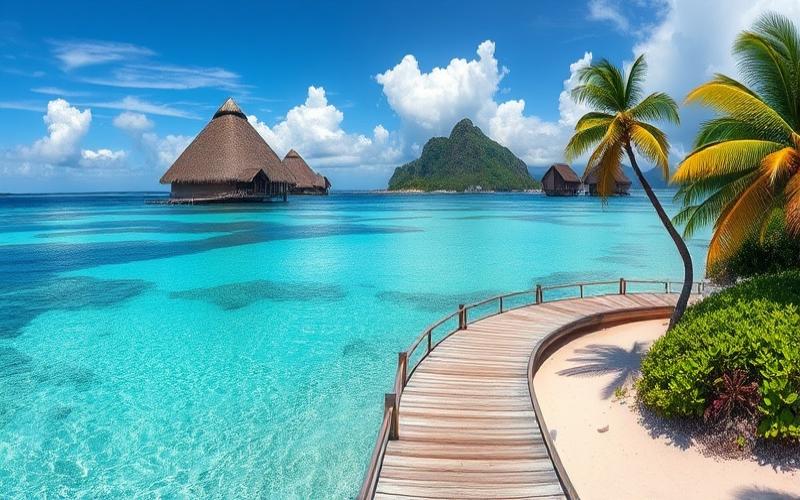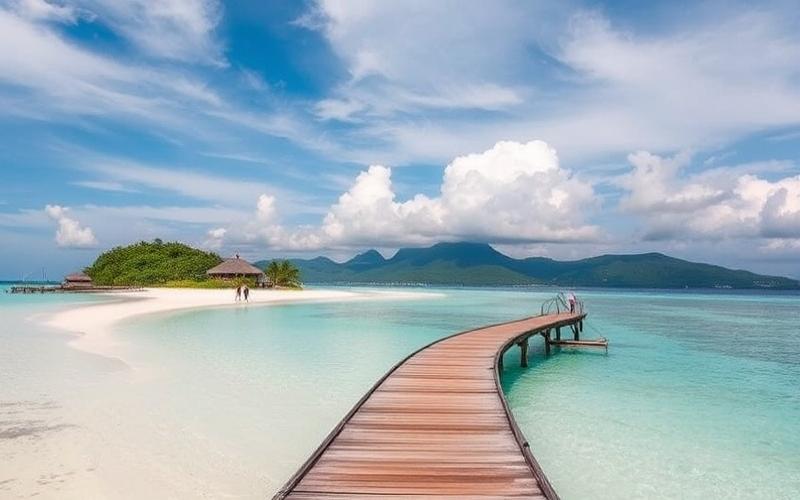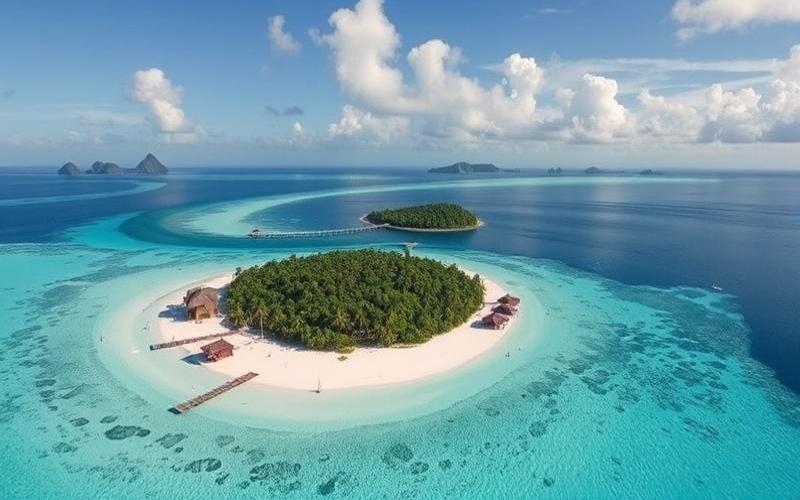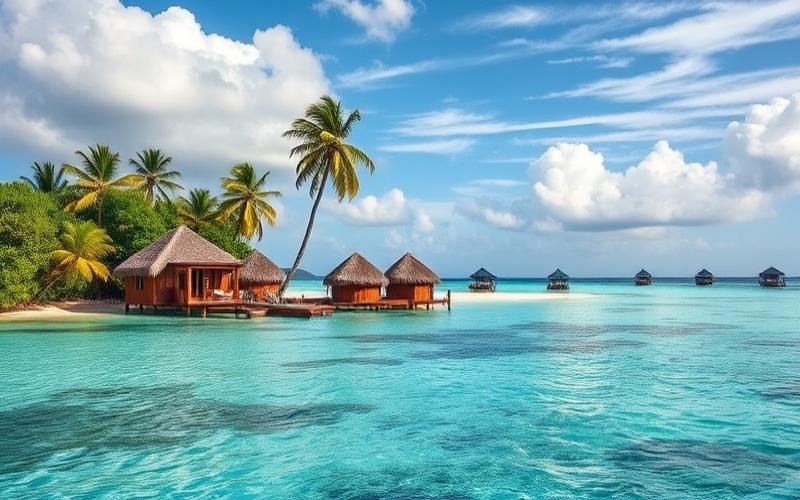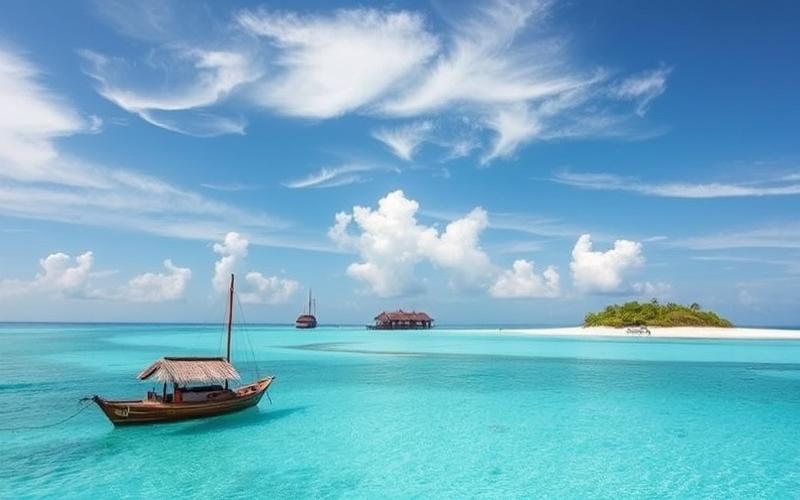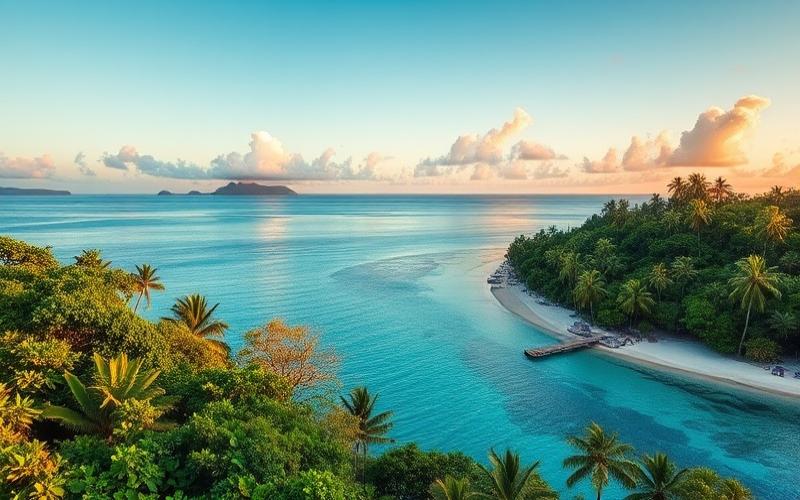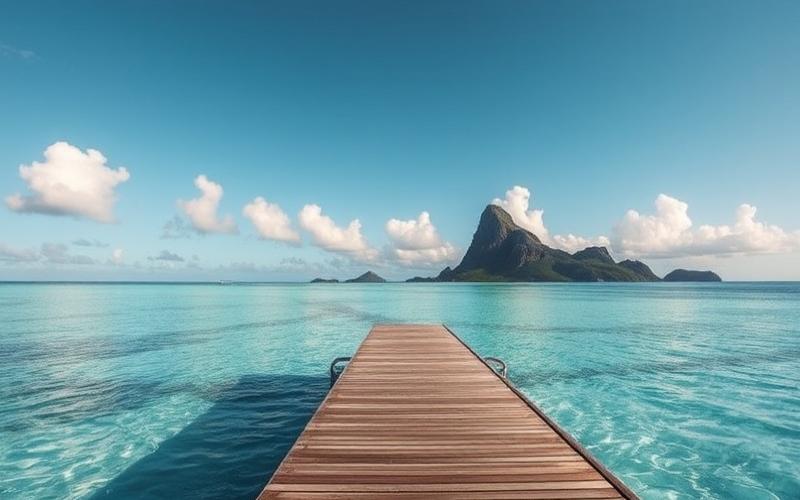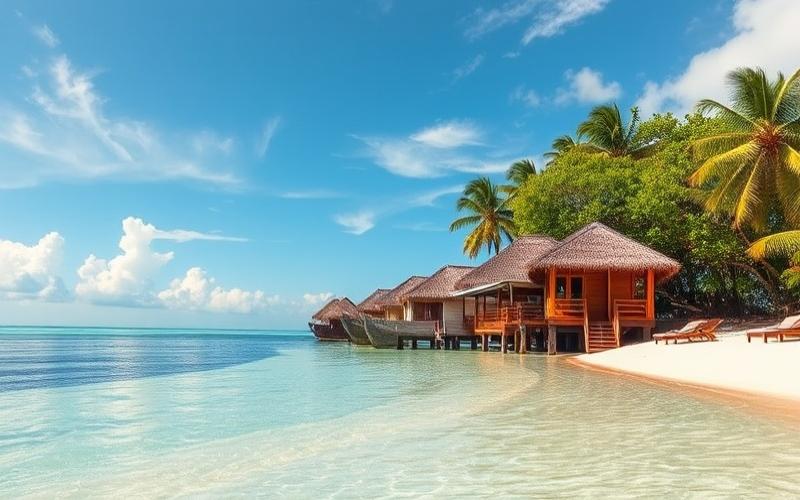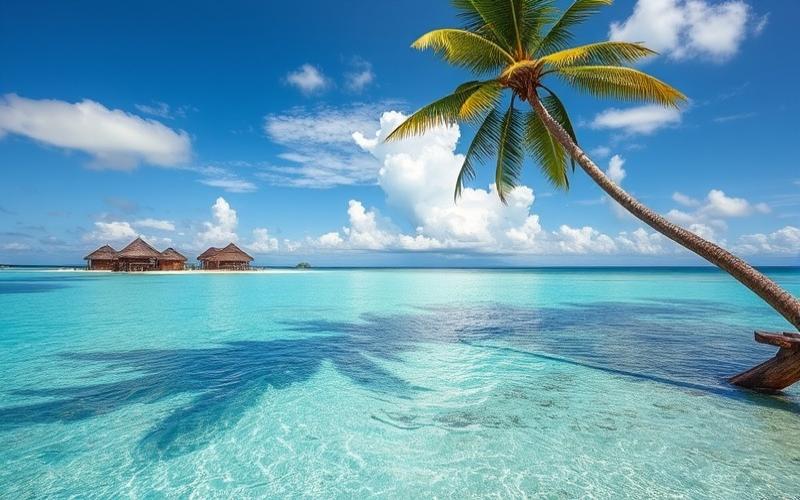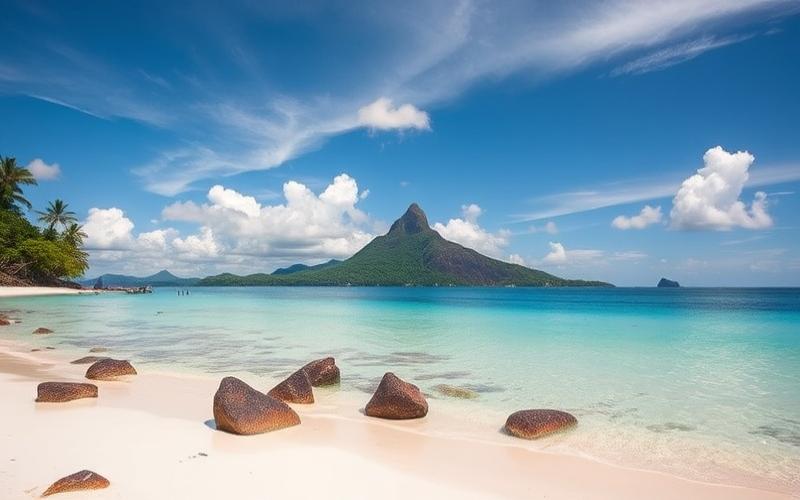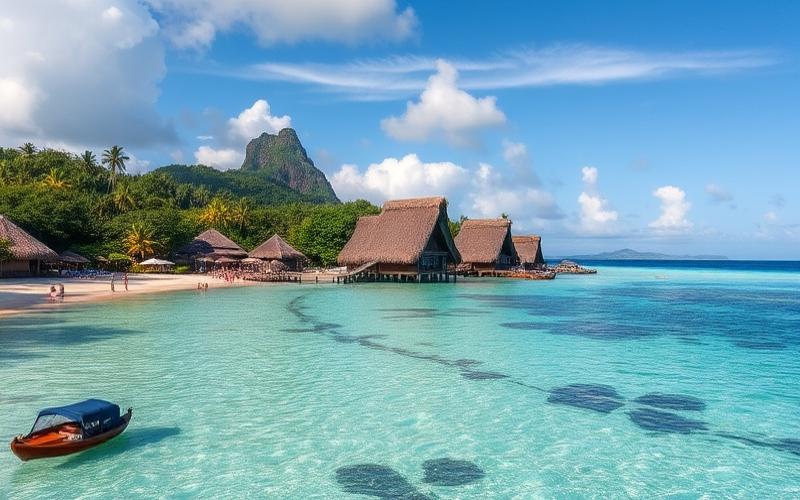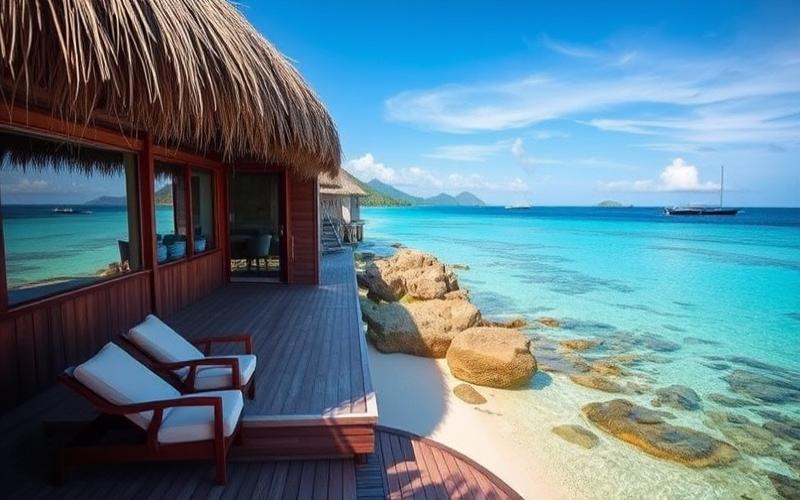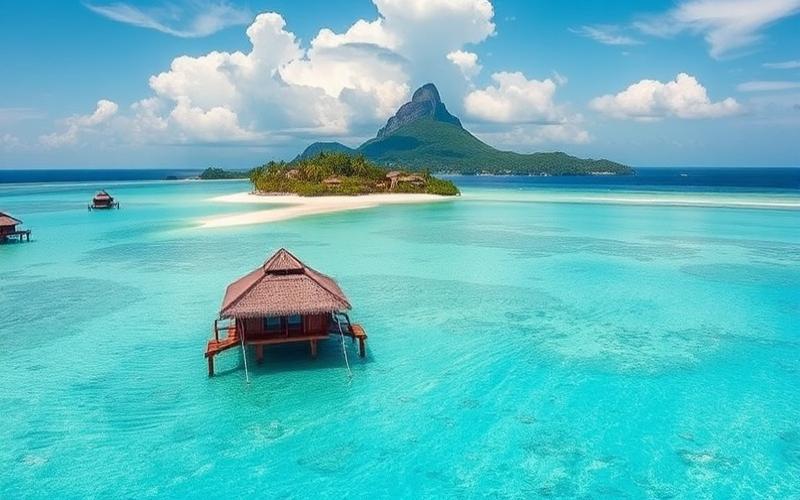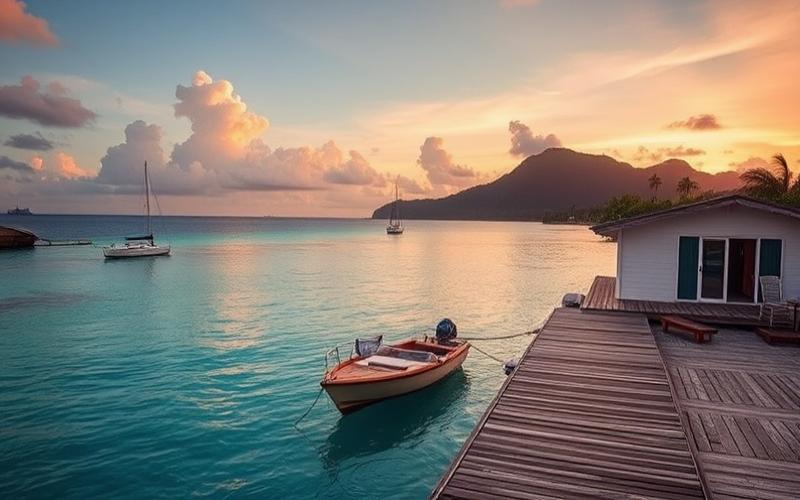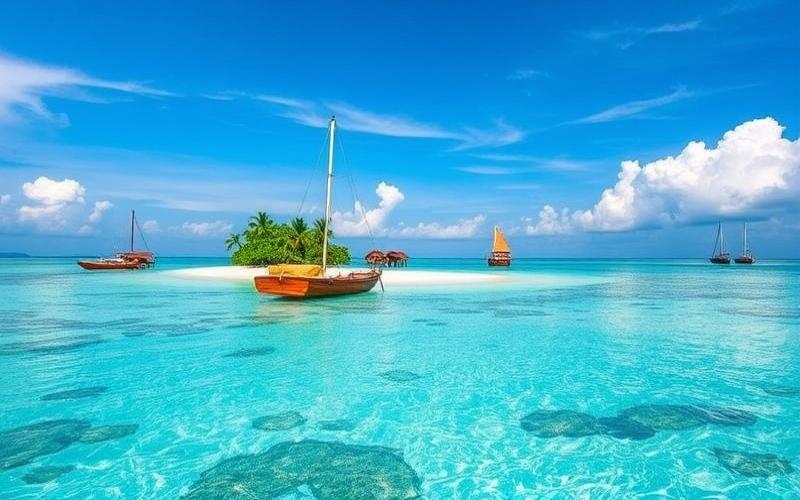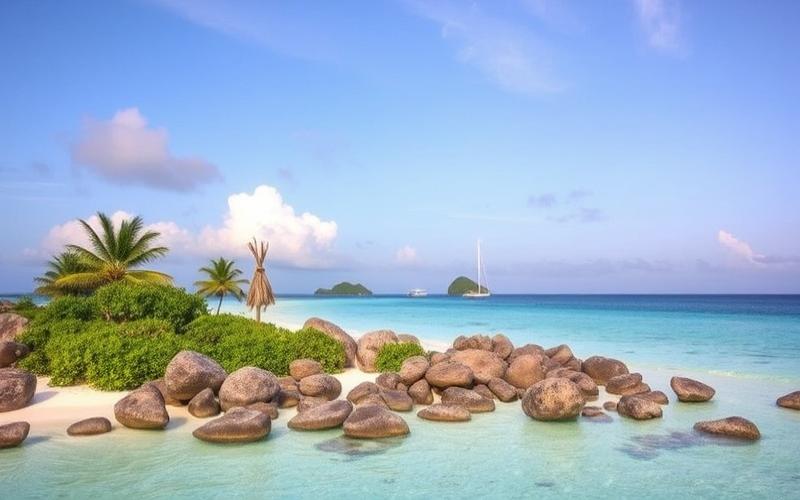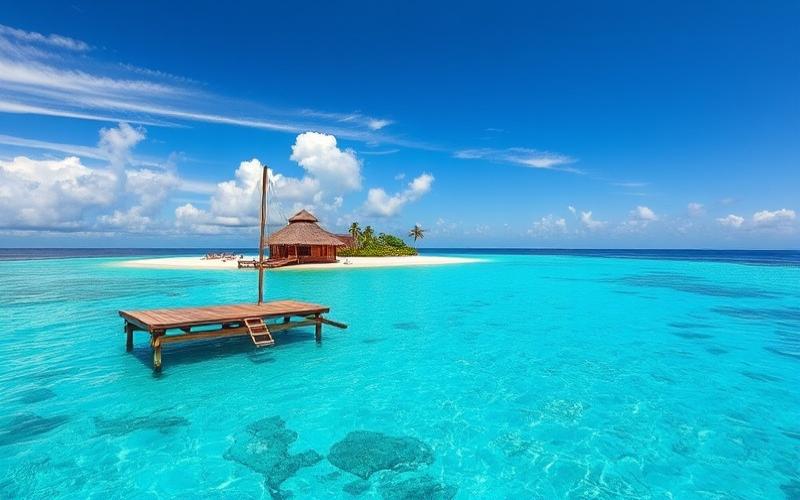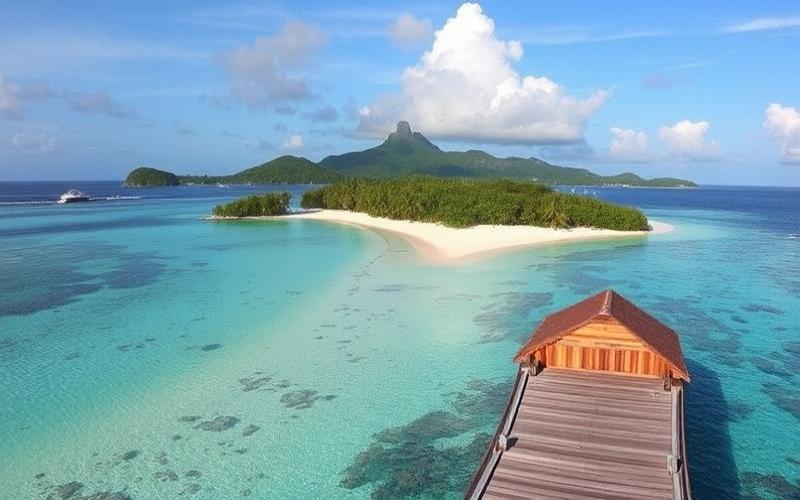
 Published on and written by Cyril Jarnias
Published on and written by Cyril Jarnias
Dreaming of relocating to the Seychelles? This archipelago of 115 islands nestled in the heart of the Indian Ocean offers an idyllic living environment with its white sand beaches, turquoise waters, and lush vegetation. But before you unpack your bags in this little corner of paradise, you’ll need to find the perfect home for your new life. Here is all our advice for finding that rare gem and successfully settling in the Seychelles.
Secrets to Finding Your Cozy Nest in the Seychelles
Finding accommodation in the Seychelles can be a real challenge for expatriates. The real estate market is limited and demand is high, which can complicate your search. Here are some tips to stack the odds in your favor:
Start your search well in advance. Ideally, plan at least 3 to 6 months before your departure to explore listings and begin the process. The real estate market in the Seychelles moves slowly, so patience is key.
Use a local real estate agency. Agencies like Seychelles Properties or Eden Island Real Estate know the market perfectly and can help you find the ideal property. They often have a portfolio of unlisted properties and can facilitate your administrative procedures.
Explore dedicated Facebook groups. Groups like “Seychelles Expats” or “Seychelles Accommodation” are a goldmine of information. Expatriates regularly share rental listings or valuable advice there.
Opt for a furnished rental initially. This will allow you to settle in quickly and explore the island at your leisure before committing long-term. Many hotels and residences offer attractive long-term packages.
Be flexible on location. The most sought-after areas like Beau Vallon or Eden Island are in high demand. By expanding your search area, you’ll increase your chances of finding that rare gem.
Prepare a strong application. Seychellois landlords can be wary of foreigners. A complete application with your proof of income, a recommendation letter from your employer, and references from previous landlords will help reassure property owners.
- Leverage your professional network. Your company or embassy may have contacts or accommodations for expatriates.
- Visit properties in person if possible. Photos can be misleading, especially regarding the actual condition of the property.
- Negotiate the rent, especially for a long-term lease. A 5 to 10% reduction is often possible.
Good to know:
The high tourist season (July-August and December-January) makes searching more difficult. If possible, plan your arrival during the off-season for more options.
Housing Budget in the Seychelles: How Much Should You Budget for Rent?
The cost of living in the Seychelles is relatively high, and housing is no exception. Rent can represent a significant portion of your budget, so it’s essential to properly assess your needs and financial capacity.
For a studio or small one-bedroom apartment, expect to pay between 800 and 1200 euros per month in sought-after areas of Mahé like Victoria or Beau Vallon. Prices can climb to 1500-2000 euros for a more spacious or better-located property.
A 2-3 bedroom house or villa typically rents for between 1500 and 3000 euros per month, depending on location and amenities. Luxury properties with private pools or sea views can easily exceed 5000 euros per month.
On the islands of Praslin or La Digue, rents are generally a bit lower than on Mahé, but the supply is also more limited. Expect to pay about 15 to 20% less for a comparable property.
It’s important to note that most landlords require a security deposit equivalent to 1 or 2 months’ rent, as well as payment of the first month upon signing the lease. Therefore, plan for substantial savings for your move-in costs.
Utilities (water, electricity, internet) are rarely included in the rent. They can represent a significant additional cost, especially if you use air conditioning frequently. Budget approximately 150 to 250 euros per month for a standard apartment.
- Leases are typically for a minimum of one year, with automatic renewal.
- Some landlords offer discounted rates for long-term rentals.
- Rent is often negotiable, especially if you commit to a long period.
Good to know:
Expatriates with a housing package from their employer have a definite advantage in the Seychellois rental market. If possible, negotiate a housing allowance with your employer before your departure.
Popular Neighborhoods for Expatriates: Where to Settle in the Seychelles?
Your choice of residence in the Seychelles will depend on your personal preferences, workplace, and budget. Here’s an overview of the areas most popular with expatriates:
On Mahé Island
Beau Vallon: This long beach in the north of Mahé is very popular with expatriates for its lively atmosphere and numerous amenities. You’ll find many restaurants, bars, and water activities there. Rents are among the highest on the island.
Eden Island: This artificial island connected to Mahé offers a luxurious living environment with its marinas, private beaches, and secure residences. It’s a popular choice for expatriate families, but the prices reflect that.
Anse Royale: Located in the southeast of Mahé, this calmer area appeals to expatriates seeking tranquility. Rents are more affordable here and the beach is magnificent.
Victoria and its surroundings: The capital offers a good compromise between urban amenities and proximity to beaches. Residential neighborhoods like Bel Air or Mont Fleuri are popular with expatriates working in the city.
On Other Islands
Côte d’Or (Praslin): This long white sand beach attracts many expatriates to the second largest island of the Seychelles. The atmosphere is more relaxed than on Mahé.
La Passe (La Digue): On this small paradise island, most expatriates settle around the main village of La Passe. The island offers a unique lifestyle, car-free and at the pace of bicycles.
- Consider the distance to your workplace. Traffic jams can be significant during rush hour on Mahé.
- Check the proximity to international schools if you have children.
- Ensure the reliability of the internet connection, crucial for many expatriates working remotely.
Good to know:
Expatriates particularly appreciate the communities of Anse Royale and Beau Vallon for their balance between quality of life, beach proximity, and access to amenities.
Pitfalls to Avoid During Your Housing Search
Finding accommodation in the Seychelles can be complex for an expatriate. Here are some pitfalls to avoid to ensure your search goes smoothly:
Don’t rely solely on photos. Online listings can be misleading. If possible, visit the property in person or ask a contact on-site to do it for you. Specifically check the general condition, lighting, and any potential noise disturbances.
Beware of offers that seem too good to be true. If a rent seems abnormally low compared to the market, there’s probably a catch. Always verify the reliability of the advertiser and never send money before signing a proper contract.
Be careful with contracts in Creole or English. Get help from a translator or local lawyer to fully understand all clauses before signing. Some landlords may include unfavorable conditions for the tenant.
Don’t neglect the move-in inspection. Carefully document the condition of the property upon your arrival (photos, videos) to avoid any disputes when you leave.
Verify the legality of the rental. Some landlords rent without authorization, which could expose you to problems. Ask to see the Accommodation Establishment License issued by the Seychellois government.
- Inquire about the reputation of the landlord or agency with the local expatriate community.
- Check that the property is properly insured and request a copy of the insurance policy.
- Ensure your lease includes an early termination clause in case of an unexpected departure.
Good to know:
Seychellois law offers relatively good protection for tenants. In case of a dispute, don’t hesitate to contact the Fair Trading Commission, the body responsible for regulating commercial practices in the Seychelles.
Administrative Procedures for Renting in the Seychelles
Once you’ve found your ideal accommodation, several administrative procedures await to finalize your rental:
Obtaining the Gainful Occupation Permit (GOP): This work permit is generally required to rent long-term accommodation in the Seychelles. Your employer should handle this, but verify that the process is underway.
Signing the lease: Rental contracts in the Seychelles are typically for a minimum of one year. Read all clauses carefully and don’t hesitate to negotiate certain points (notice period, utility allocation, etc.).
Payment of the security deposit: It is usually equivalent to 1 or 2 months’ rent. Ensure it is clearly mentioned in the contract and request a receipt.
Opening utility accounts: For electricity and water, you’ll need to go to the Public Utilities Corporation (PUC) offices with a copy of your lease and an ID.
Home insurance: While not mandatory, it is highly recommended. Several local companies like SACOS or H Savy offer policies tailored for expatriates.
- Remember to update your address with your embassy.
- If you’re renting a furnished property, do a detailed inventory with the landlord.
- For internet, several providers like Cable & Wireless or Airtel offer packages suitable for expatriates.
Good to know:
Most landlords prefer payments in Seychellois rupees. Plan to open a local bank account to facilitate your transactions.
Finding accommodation in the Seychelles requires time and patience, but with the right advice and a bit of perseverance, you will certainly find the ideal cozy nest to fully enjoy your expatriation in this tropical paradise. Don’t forget to immerse yourself in the local culture and build connections with the expatriate community to ease your integration.
Disclaimer: The information provided on this website is for informational purposes only and does not constitute financial, legal, or professional advice. We encourage you to consult qualified experts before making any investment, real estate, or expatriation decisions. Although we strive to maintain up-to-date and accurate information, we do not guarantee the completeness, accuracy, or timeliness of the proposed content. As investment and expatriation involve risks, we disclaim any liability for potential losses or damages arising from the use of this site. Your use of this site confirms your acceptance of these terms and your understanding of the associated risks.

